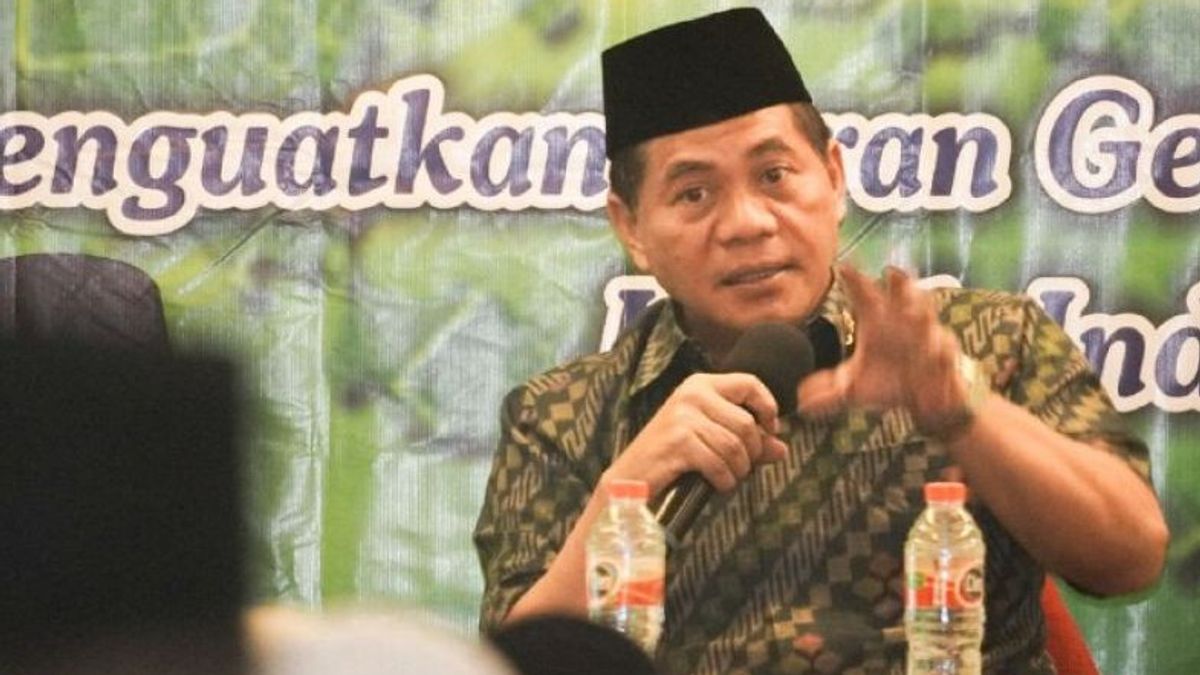JAKARTA - Director of Prevention of the National Counterterrorism Agency (BNPT) Brigadier General Ahmad Nurwakhid said the Khilafatul Muslimin group was as dangerous as HTI, NIII and ISIS because they campaigned for the establishment of the caliphate system.
This was revealed by Nurwakhid responding to impressions on social media related to a convoy of motorbike groups carrying attributes that read 'Awakening of the Caliphate' in Brebes, Central Java, and Cawang, East Jakarta.
In some of their attributes, they campaign for the establishment of the caliphate system as a solution for the people carried out by the Khilafatul Muslimin group.
Nurwakhid, in his written statement on Tuesday, said that the Khilafatul Muslimin actually had the same ideals and ideology as HTI which had been dissolved by the government, namely establishing a caliphate.
"The difference is, HTI is a trans-national movement and is fighting for the caliphate system in various countries. Meanwhile, the Khilafatul Muslimin claims to have established a caliphate with an elected caliph," explained Nurwakhid as quoted by Antara, Tuesday, May 31.
Nurwakhid explained that the genealogy of the Khilafatul Muslimin cannot be separated from the NII because most of the key figures in this movement are former NII.
Its founder and leader is Abdul Qadir Hasan Baraja, a former member of the NII and one of the founders of the Ngruki Islamic Boarding School and took part in the Indonesian Mujahideen Council in 2000, although he chose not to be active.
Nurwakhid added that there are several parameters that can be used in viewing the Khilafatul Muslimin. First, the ideological aspect is very dangerous by having the ideological ideals of a caliphate in Indonesia as HTI.
"Although in their confession they do not contradict Pancasila, their ideology is to disbelieve in a system that is not in accordance with their views," he explained.
Second, continued Nurwakhid, historically, the founder of this movement was very close to radical groups such as NII, MMI and had a track record in terrorism cases. Baraja has been detained 2 times, the first in January 1979 related to the Warman Terror, detained for 3 years. Then arrested and detained again for 13 years, in connection with the bombing cases in East Java and Borobudur in early 1985.
Third, the ideological impact, this movement which has the ideological ideals of changing the system is very vulnerable to metamorphosis into a terror movement.
"Look at the case of the arrest of NAS as a terrorist suspect in Bekasi, which was found in his rented box containing the Khilafatul Muslimin and the Khilafatul Muslimin embroidered logo," he said.
In addition, Nurwakhid continued, the Khilafatul Muslimin movement is easily affiliated with terror group networks such as ISIS. even during the heyday of ISIS in 2015, Rohan Gunaratna, a Terrorism Researcher from Singapore, classified Khilafatul Muslims as having pledged allegiance to ISIS.
Regarding this issue, Nurwakhid explained, BNPT, which was mandated as the leading sector to coordinate the prevention of ideas that can encourage terrorism, has coordinated the Regional Government, Forkopimda throughout the territory of the Republic of Indonesia to be aware of this movement because it is contrary to the nation's philosophy and has the potential to give birth to a terrorism movement.
The English, Chinese, Japanese, Arabic, and French versions are automatically generated by the AI. So there may still be inaccuracies in translating, please always see Indonesian as our main language. (system supported by DigitalSiber.id)













